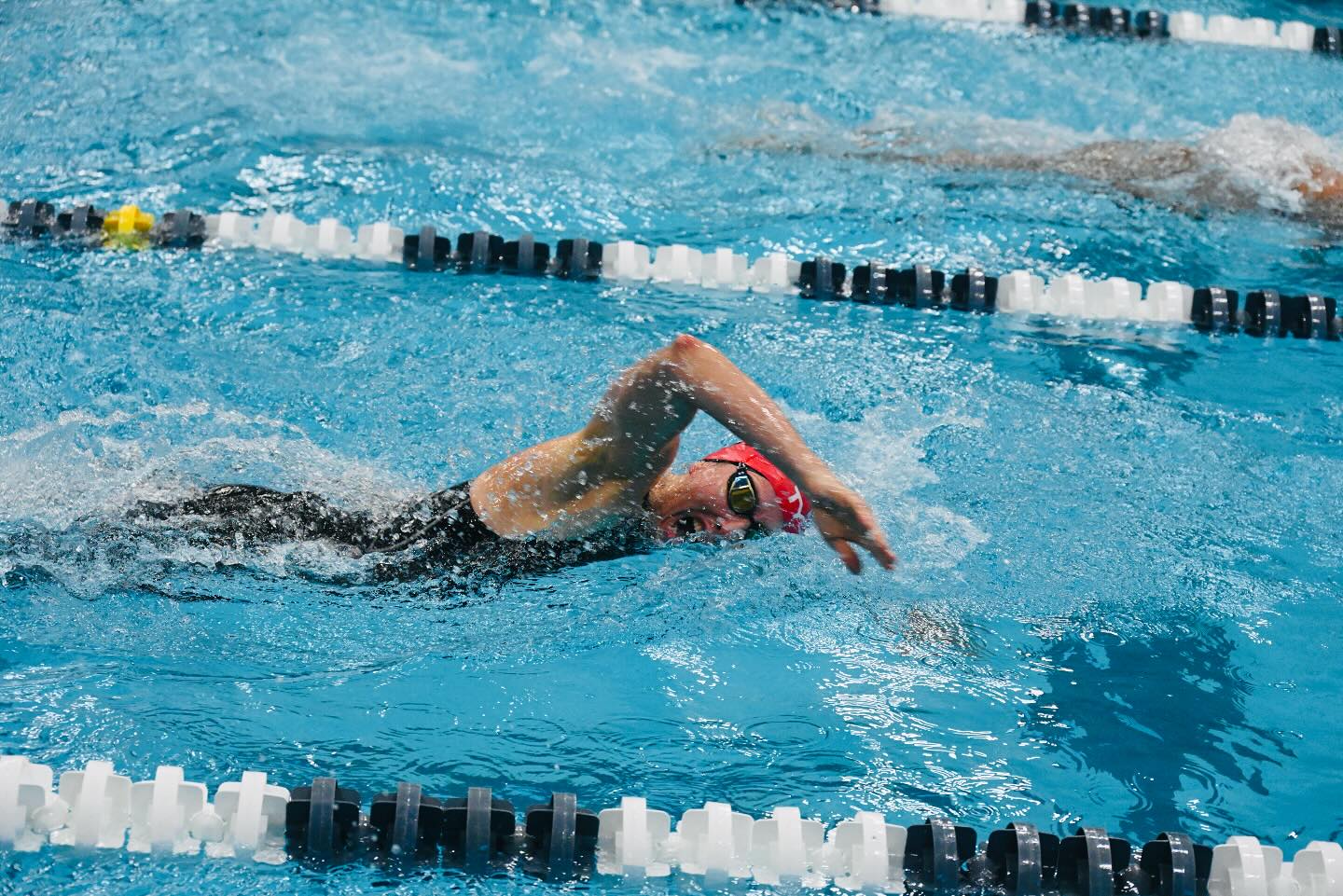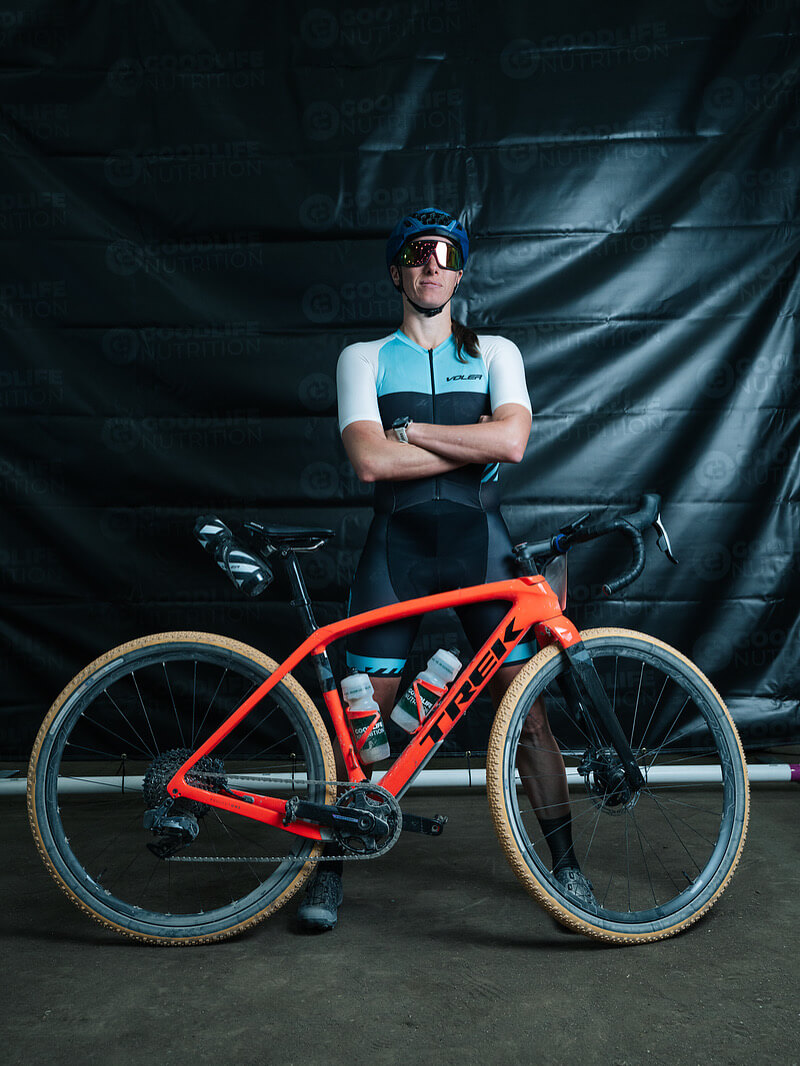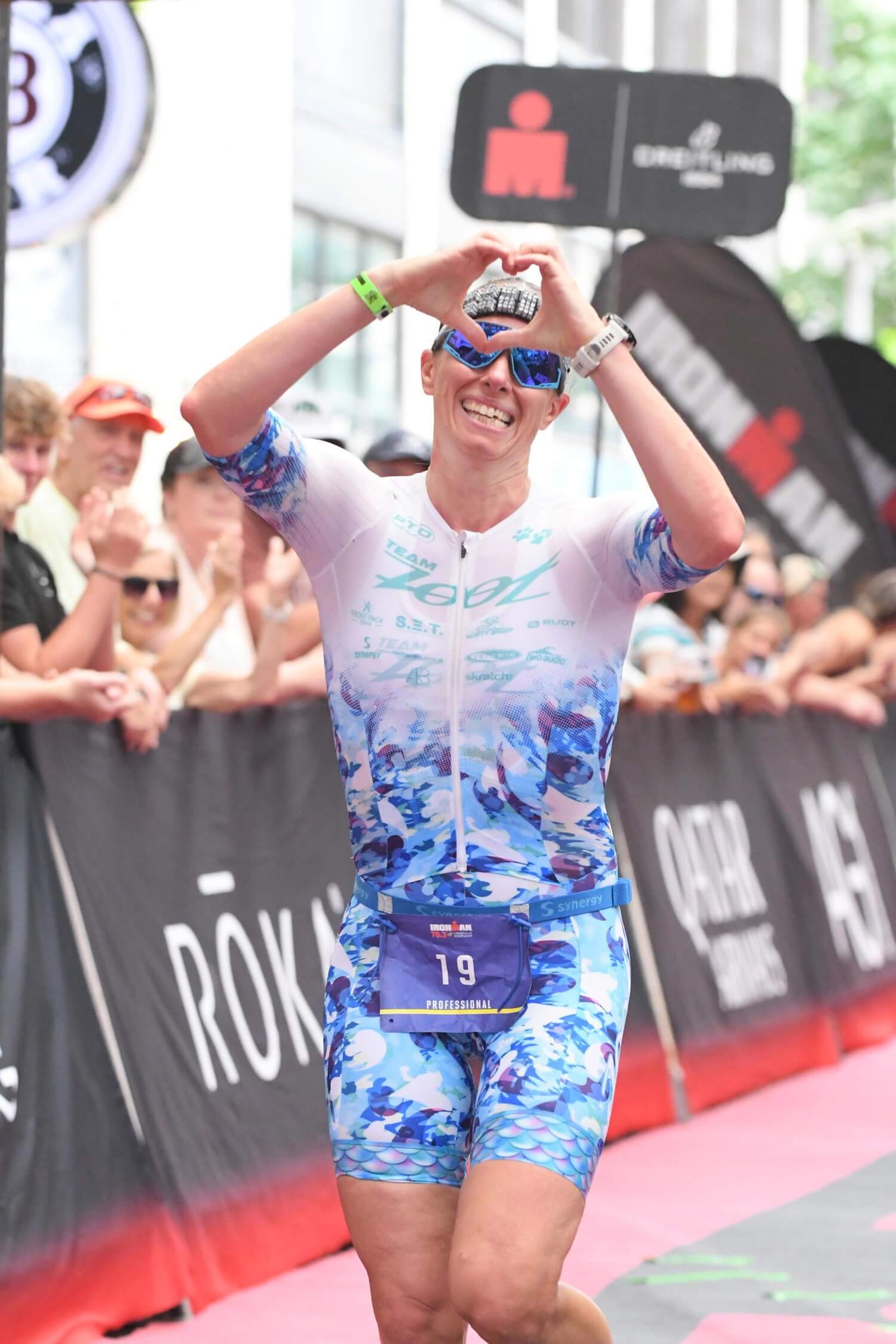For many triathletes, the hardest part isn't the training—it's the balance. Family, work, and responsibilities often compete with early morning swims and long weekend rides. Professional triathlete Meghan Dirito knows this firsthand. Her journey is proof that you can pursue ambitious athletic goals while being fully present for your family.
From the Pool to Parenthood to Triathlon
Meghan's athletic background started in the pool as a Division I swimmer specializing in sprint freestyle. After college, she pursued a career as an emergency vet, found a love for scuba diving and running, and eventually, through her husband, discovered cycling.
Then life shifted. With young kids, Meghan stepped away from structured training for years. "That's part of life," she reflects. "My husband married me as an athlete, but for three years I just didn't work out."
Her re-entry came almost by accident. While caring for her kids, she found an old triathlon training book and thought, this looks cool. She signed up for a local sprint triathlon on a hilly Pennsylvania course with nothing but an old road bike. That race lit a fire. Soon, she was hooked—moving from sprint to Olympic to half-Iron distance, steadily building experience and passion.
By 2019, she had raced her first full Ironman in Chattanooga, landing 4th in her age group and narrowly missing a Kona slot. The obsession grew. With upgraded gear, coaching, and relentless consistency, she steadily climbed the ranks, eventually earning her pro license in 2023.

What Changes When You Go Pro?
The shift from age-group to professional racing wasn't just physical—it was mental. As an age-grouper, Meghan was consistently near the top, often qualifying for world championships. As a pro, she suddenly found herself in the middle of the pack.
"That was hard at first," she admits. "I had to reframe my perspective. It didn't mean I was slower or worse. It just meant I was racing against the very best."
Her training volume also jumped. What once felt like a "big week" at 16 hours became a new normal. With guidance from multiple coaches, she learned to balance TSS, listen to her body, and use RPE (rate of perceived exertion) instead of blindly following numbers. Sometimes that means changing a workout on the fly, swapping a VO2 max set for recovery based on feel.
The payoff is clear: her Ironman swim time dropped from 58 to 50 minutes, and her ability to adapt day-to-day has become one of her greatest strengths.

Parenting and Training: Making It Work
Meghan is the first to admit that balance doesn't come from having extra time—it comes from making the time.
"When people say they don't have time, I tell them: you always have time for what matters to you. Even if it's 30 minutes, you can find it," she says. For her, that meant years of running with a double stroller, or fitting sessions into small gaps in the day.
She also emphasizes being a role model. "As a parent, it's important to do what you love. Your kids see that and model it. If you say you're going for a ride, they notice your commitment and dedication." Today, both her son and daughter train 20 hours a week as competitive swimmers—proof of the values passed down.
And while individual discipline matters, she stresses the importance of a supportive family dynamic: open communication, teamwork with her husband, and weaving training into the family lifestyle instead of fighting against it.
Dreaming Big
For athletes chasing their own big goals—whether that's a Kona slot, a first Ironman, or even a pro license—Meghan's advice is simple but powerful:
Set goals just beyond what you think you can do. If you're mid-pack, aim for top 10. If you've never raced long course, sign up for a 70.3.
Stay consistent. Years of small, steady steps lead to breakthroughs.
Don't lose sight of your dream. "You are capable of more than you think. Put in the work, stay true to your dream, and don't give up before you've given 100%."
The Takeaway for Triathletes with Families
Meghan's story isn't about choosing between family and triathlon—it's about showing they can strengthen each other. Training teaches commitment, discipline, and resilience. Parenting demands the same. When balanced with intention, they can feed off one another, creating a lifestyle that inspires the next generation.






